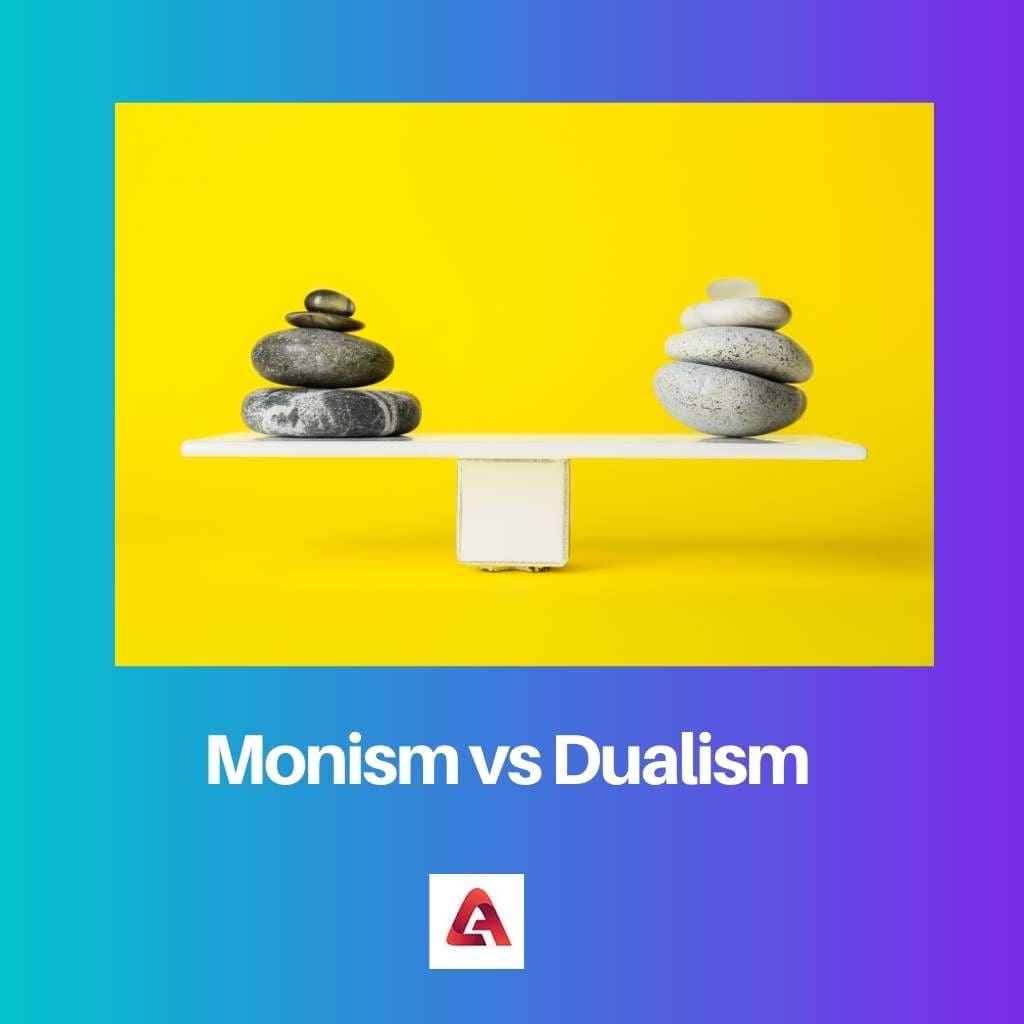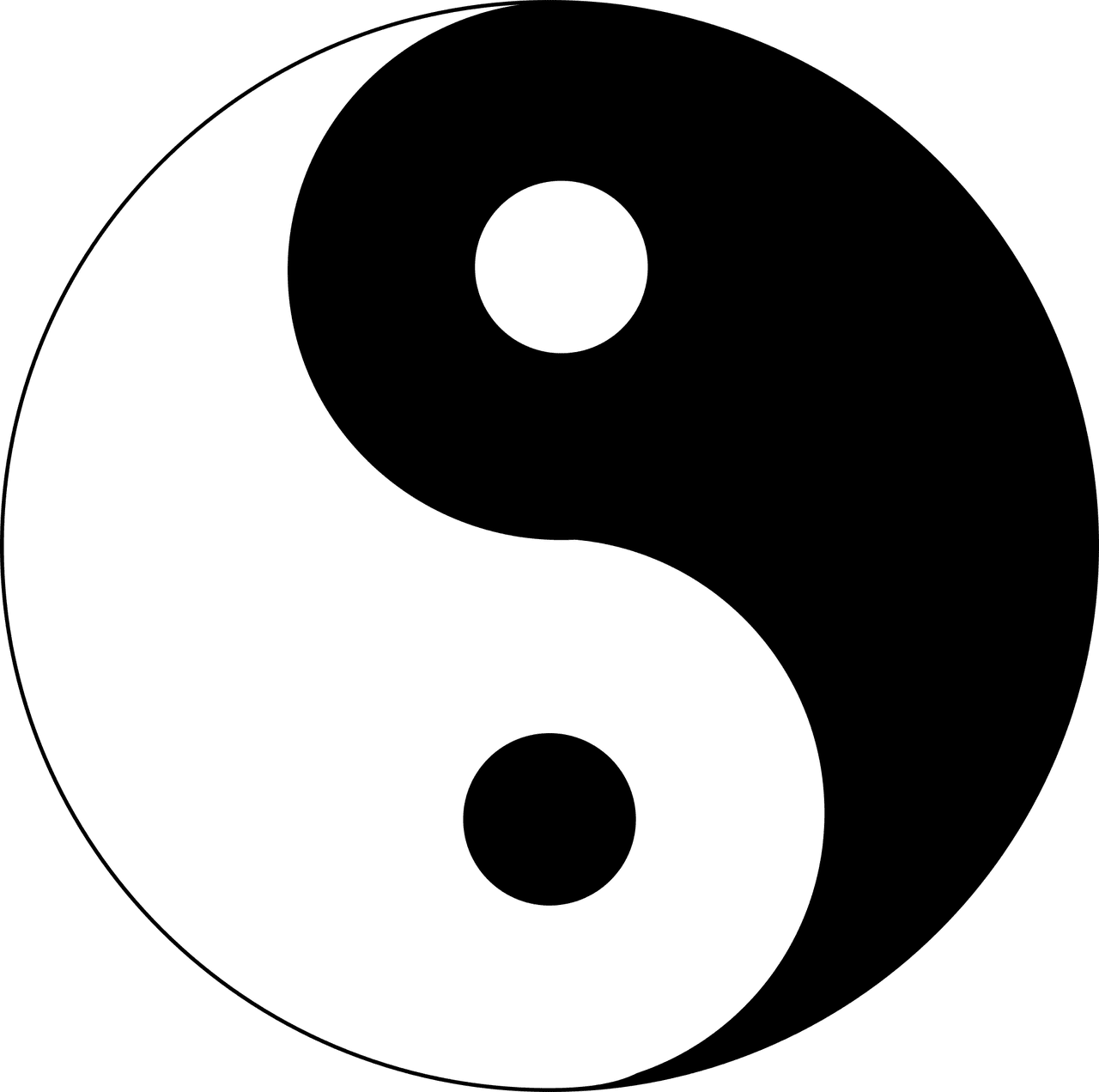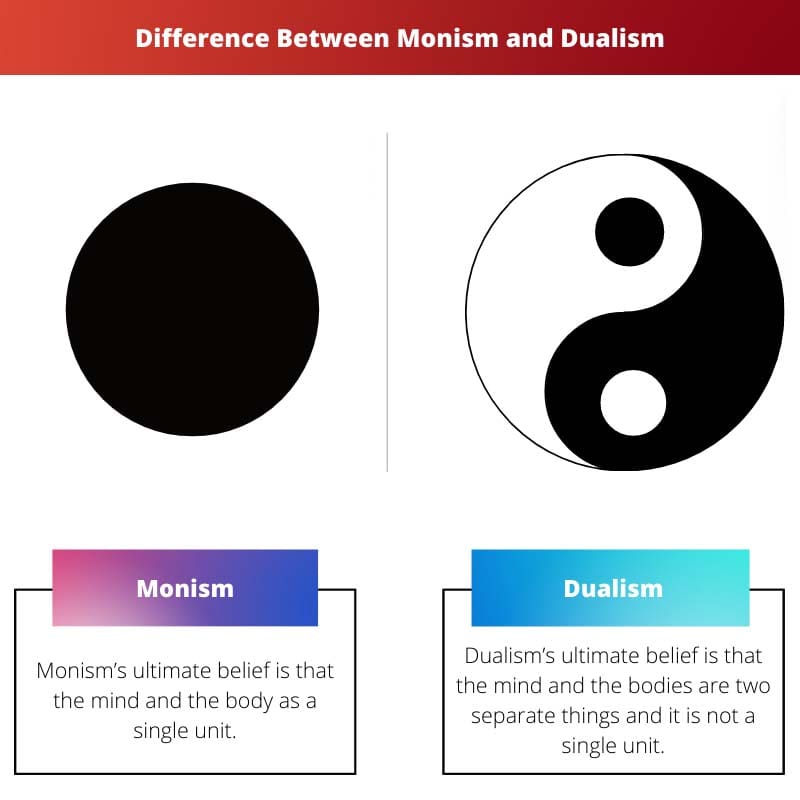The terms ‘monism’ and ‘dualism’ are two philosophical terms. Basically, these are the two Schools of Thought in Philosophy.
Peace of mind has become a new issue in the present. In the human body, the mind and body are a newly emerging issue in the study of neurophilosophy.
The relationship between the mind and the body is very important.
The two Schools of Thought in Philosophy have emerged to distinguish and solve the problems of whether the mind, body, and soul equally exist and co-relate with each other or whether it is separated from each other.
Hence, the two Schools of Thought in Philosophy i.e. Monism and Dualism have emerged to solve the problems.
Key Takeaways
- Monism asserts that reality consists of a single, unified substance or principle, whereas dualism posits that reality comprises two fundamentally distinct substances or principles.
- Monism can take various forms, such as materialism or idealism, while dualism refers to the separation of mind and body or the physical and spiritual realms.
- Monism seeks to explain the unity of existence, while dualism aims to account for the diversity of phenomena and experiences.
Monism vs Dualism
Monism is the philosophical belief that all of reality is ultimately one substance or principle. In other words, everything in the universe, including physical matter and consciousness, is fundamentally interconnected. Dualism is the belief that reality is made up of two fundamentally different substances or principles, mind and matter. Dualists argue that the mind and body are distinct entities that interact with each other.

Monism refers to the ultimate belief that an individual has one single type of nature, that is, the mind and the body is connected to interlinked with each other.
Monism believes that after an individual’s death, the soul gets connected with the Supreme soul. It truly believes in the existence of the Supreme soul.
On the other hand, Dualism believes that an individual has dual or two types of nature, that is, the mind and the body are two different and distinct parts from each other, and it does not believe in the generation of the supreme soul
but it believes its existence depends upon the supreme soul.
Comparison Table
| Parameters of Comparison | Monism | Dualism |
|---|---|---|
| Definition | Monism refers to the ultimate faith that an individual’s mind and body are equal and it is generated from a supreme soul and the mind and the body are connected with each other. | Dualism refers to the ultimate faith that the mind and the body of an individual are two separate things and can be differentiated. |
| Belief | Monism’s ultimate belief is that the mind and the body as a single unit. | Dualism’s ultimate belief is that the mind and the bodies are two separate things and it is not a single unit. |
| Nature | Monism believes that only one type of nature exists. | Dualism believes that an individual has a dual nature. |
| Existential View | Monism’s existential view is that all humans subsist as one and have equal capabilities. | Dualism’s existential view is that an individual’s existence is separate and distinct. |
| Religions | Hinduism, Buddhism, Atheism, etc believe in Monism. | Christianity, Judaism, etc. |
| Representative Intellect | Heraclitus, George Berkeley, etc. | Aristotle, Rene Descartes, etc. |
What is Monism?
Monism is a philosophical concept. Monism refers that its ultimate faith is that a human body and mind are equal and the soul is generated from a supreme soul, and after death, the individual’s soul gets connected to the supreme soul.
According to monism, life is nothing but the connection between an individual and the supreme soul. It is also said that the supreme soul connects the body and mind with each other.
The supreme soul is very powerful and pure. In monism, it is believed that the individual’s mind and body are equally powerful as the supreme power.
According to Monism, the whole universe except the supreme power and supreme soul are not real and hence, it is hallucination or imaginary.
There are some particular religions that believe in the concept of Monism, like Hinduism. Buddhism, Atheism, etc.

What is Dualism?
Dualism is also a philosophical concept. Dualism refers that its ultimate faith is that an individual’s mind and body are two separate things that are not connected with each other.
The mind and body are not termed as single units. Dualism does not believe that an individual is generated from a supreme soul, but it believes that the existence of an individual is somehow connected to the supreme soul.
According to Dualism, individual souls are weak and powerless in front of the supreme soul. Dualism believes that the external world and its co-existing things are real and not hallucinations.
Some regions that believe in the concept of Dualism are Christianity, Judaism, etc.

Main Difference Between Monism and Dualism
- Monism refers to the ultimate faith that an individual’s mind and body are equal, and it is generated from a supreme soul and the mind and the body is connected with each other. On the other hand, Dualism refers to the ultimate faith that the mind and the body of an individual are two separate things and can be differentiated.
- Monism’s ultimate belief is that the mind and the body as a single unit. On the other hand, Dualism’s ultimate belief is that the mind and the bodies are two separate things and it is not a single unit.
- Monism believes that only one type of nature exists. On the other hand, Dualism believes that an individual has a dual nature.
- Religions such as Hinduism, Buddhism, Atheism, etc., believe in Monism. On the other hand, religions such as Christianity, Judaism, etc.
- Heraclitus, George Berkeley, etc., are some representative intellects of Monism. On the other hand, Aristotle, Rene Descartes, etc. are some representative intellects of Dualism.

- https://heinonline.org/hol-cgi-bin/get_pdf.cgi?handle=hein.journals/byrint17§ion=9
- https://www.cambridge.org/core/journals/medical-history/article/vital-principle-of-paul-joseph-barthez-the-clash-between-monism-and-dualism/396D0342A1BD066E17888BD4A9102080

The comparison between monism and dualism in terms of nature and existence provides a deeper understanding of their philosophical implications. It’s thought-provoking.
I completely agree, Ltaylor. The examination of nature and existence enhances the richness of philosophical discourse.
Absolutely, Ltaylor. Exploring these fundamental aspects sheds light on the core differences between monism and dualism.
The detailed explanations of monism and dualism are immensely helpful. It’s refreshing to see such insightful content on philosophical concepts.
I couldn’t agree more, Amber King. The thoroughness of the explanations allows readers to engage with these complex ideas more effectively.
Well stated, Amber King. The in-depth analyses of monism and dualism are intellectually stimulating.
The distinctions between monism and dualism are well-articulated in this article. It offers a comprehensive overview of these complex philosophical concepts.
I share your sentiment, Pjackson. The article provides a thorough examination of monism and dualism.
Absolutely, Pjackson. The nuanced explanations contribute to a deeper understanding of these philosophical principles.
As someone who’s interested in spirituality, the difference between monism and dualism in relation to religion is a compelling aspect. It’s intriguing to see how these philosophies impact religious beliefs.
I share your interest, Eva Wood. The influence of monism and dualism on religious practices and beliefs is a significant area of study.
I agree, Eva Wood. Exploring the intersection of philosophy and religion is an enlightening pursuit.
The representation of intellect section provides insight into the influential thinkers behind monism and dualism. It’s an insightful addition to the article.
Absolutely, Caitlin48. The representative intellects shed light on the historical and intellectual contexts of these philosophical ideas.
Well said, Caitlin48. It’s important to acknowledge the thinkers that paved the way for these philosophical debates.
The explanation of monism and dualism from a religious perspective is intriguing. It’s interesting to see how these concepts intersect with various belief systems.
I share your fascination, Xharrison. The relationship between philosophy and religion is a captivating area of exploration.
The comparison table is very useful in understanding the key differences between monism and dualism. It’s a clear and concise summary.
The mind-body problem is fascinating. Both monism and dualism have compelling arguments, but I tend to lean towards monism. It just seems more logical to me that everything is interconnected.
I understand your point, Joshua58, but dualism also has some valid reasons for its beliefs. It’s a complex issue.
I have to agree with you, Joshua58. Monism provides a more cohesive explanation of the relationship between the mind and body.
The holistic approach to defining monism and dualism provides a comprehensive understanding of these philosophical ideas. Well-articulated content.
I couldn’t agree more, Yvonne28. The holistic perspective enriches the discourse on monism and dualism.
Well said, Yvonne28. The comprehensive delineation of these concepts is enlightening and intellectually stimulating.
The existential view section is particularly interesting. It helps to highlight the implications of monism and dualism on human existence.
I agree, Craig29. Understanding the existential views of these philosophical concepts is crucial for a deeper comprehension.